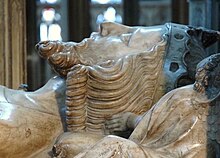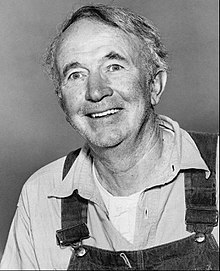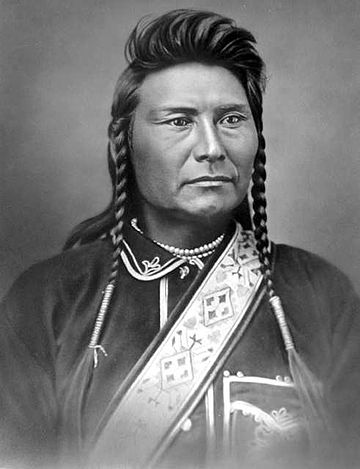September 21 is the 264th day of the year (265th in leap years) in the Gregorian calendar. There are 101 days remaining until the end of the year.
Holidays
- Autumnal equinox observances in the Northern hemisphere, vernal equinox observances in the Southern hemisphere (see September 22):
- Christian Feast Day:
- Founder’s Day and National Volunteer Day (Ghana)
- Independence Day, celebrates the independence of Armenia from the Soviet Union in 1991.
- Independence Day, celebrates the independence of Belize from the United Kingdom in 1981.
- Independence Day, celebrates the independence of Malta from the United Kingdom in 1964.
- International Day of Peace (International)
History
In 455, Emperor Avitus enters Rome with a Gallic army and consolidates his power.
In 1170, The Kingdom of Dublin falls to Norman invaders.
In 1217, Livonian Crusade: The Estonian leader Lembitu and Livonian leader Kaupo the Accursed are killed in Battle of Matthew’s Day.

In 1327, Edward II of England (b. 1284) dies (probably murdered). Edward II was also called Edward of Caernarfon, was King of England from 1307 until he was deposed in January 1327. The fourth son of Edward I, Edward became the heir to the throne following the death of his older brother Alphonso. Beginning in 1300, Edward accompanied his father on campaigns to pacify Scotland, and in 1306 he was knighted in a grand ceremony at Westminster Abbey. Edward succeeded to the throne in 1307, following his father’s death. In 1308, he married Isabella of France, the daughter of the powerful King Philip IV, as part of a long-running effort to resolve the tensions between the English and French crowns.
Edward had a close and controversial relationship with Piers Gaveston, who had joined his household in 1300. The precise nature of Edward and Gaveston’s relationship is uncertain; they may have been friends, lovers or sworn brothers. Gaveston’s arrogance and power as Edward’s favourite provoked discontent both among the barons and the French royal family, and Edward was forced to exile him. On Gaveston’s return, the barons pressured the King into agreeing to wide-ranging reforms called the Ordinances of 1311. The newly empowered barons banished Gaveston, to which Edward responded by revoking the reforms and recalling his favourite. Led by Edward’s cousin, the Earl of Lancaster, a group of the barons seized and executed Gaveston in 1312, beginning several years of armed confrontation. English forces were pushed back in Scotland, where Edward was decisively defeated by Robert the Bruce at the Battle of Bannockburn in 1314. Widespread famine followed, and criticism of the King’s reign mounted.
In 1435, An agreement between Charles VII of France and Philip the Good ends the partnership between the English and Burgundy in Hundred Years’ War.
In 1745, Battle of Prestonpans: A Hanoverian army under the command of Sir John Cope is defeated, in ten minutes, by the Jacobite forces of Prince Charles Edward Stuart
In 1776, Part of New York City is burned shortly after being occupied by British forces.
In 1792, The National Convention declares France a republic and abolishes the monarchy.
In 1780, American Revolutionary War: Benedict Arnold gives the British the plans to West Point.
In 1843, John Williams Wilson takes possession of the Strait of Magellan on behalf of the newly-independent Chilean government.
In 1860, In the Second Opium War, an Anglo-French force defeats Chinese troops at the Battle of Palikao.
In 1896, British force under Horatio Kitchener takes Dongola in the Sudan.
In 1897, The “Yes, Virginia, there is a Santa Claus” editorial is published in the New York Sun.
In 1898, Empress Dowager Cixi seizes power and ends the Hundred Days’ Reform in China.
In 1904, Chief Joseph, American tribal leader (b. 1840) dies. Hinmatóowyalahtq̓it in Americanist orthography, popularly known as Chief Joseph or Young Joseph, succeeded his father Tuekakas (Chief Joseph the Elder) as the leader of the Wal-lam-wat-kain (Wallowa) band of Nez Perce, a Native American tribe indigenous to the Wallowa Valley in northeastern Oregon, in the interior Pacific Northwest region of the United States.
He led his band during the most tumultuous period in their contemporary history when they were forcibly removed from their ancestral lands in the Wallowa Valley by the United States federal government and forced to move northeast, onto the significantly reduced reservation in Lapwai, Idaho Territory. A series of events that culminated in episodes of violence led those Nez Perce who resisted removal, including Joseph’s band and an allied band of the Palouse tribe, to take flight to attempt to reach political asylum, ultimately with the Lakota led by Sitting Bull, who had sought refuge in Canada.
They were pursued by the U.S. Army in a campaign led by General Oliver O. Howard. This 1,170-mile (1,900 km) fighting retreat by the Nez Perce in 1877 became known as the Nez Perce War. The skill with which the Nez Perce fought and the manner in which they conducted themselves in the face of incredible adversity led to widespread admiration among their military adversaries and the American public.
In 1921, A storage silo in Oppau, Germany, explodes, killing 500-600 people.
In 1933, Salvador Lutteroth ran the first ever EMLL (now CMLL) show in Mexico, marking the birth of Lucha Libre
In 1934, A large typhoon hits western Honshū, Japan, killing 3,036 people.
In 1937, J. R. R. Tolkien‘s The Hobbit is published.
In 1938, The Great Hurricane of 1938 makes landfall on Long Island in New York. The death toll is estimated at 500-700 people.
In 1939, Romanian Prime Minister Armand Călinescu is assassinated by far-right legionnaires of the fascist paramilitary organization called the Iron Guard.
In 1942, On the Jewish holiday of Yom Kippur, Nazis send over 1,000 Jews of Pidhaytsi (west Ukraine) to Belzec extermination camp.
In 1942, The B-29 Superfortress makes its maiden flight.
In 1942, In Poland, at the end of Yom Kippur, Germans order Jews to permanently evacuate Konstantynów and move to the Ghetto in Biała Podlaska, established to assemble Jews from seven nearby towns, including Janów Podlaski, Rossosz and Terespol.
In 1942, In Dunaivtsi, Ukraine, Nazis murder 2,588 Jews.

In 1947, Harry Carey, American actor, director, producer, and screenwriter (b. 1878) dies from a combination of lung cancer, emphysema and coronary thrombosis, at the age of 69. He was interred in Woodlawn Cemetery in the family mausoleum in the Bronx, New York. He was an American actor and one of silent film’s earliest superstars. He was the father of Harry Carey Jr., who was also a prominent actor. Carey was born “Henry DeWitt Carey II” in the Bronx, New York, a son of Henry DeWitt Carey, a prominent lawyer and judge of the New York Supreme Court, and his wife Ella J. (Ludlum). He grew up on City Island, Bronx. Carey first appeared in a film in 1908. He was contracted to make four films—not only acting but also doing his own stunt work. He is best remembered as one of the first stars of the Western film genre.
In 1953, LT No Kum-Sok a North Korean pilot defected to South Korea and is associated with Operation Moolah.
In 1961, Maiden flight of the CH-47 Chinook transportation helicopter.
In 1964, The North American XB-70 Valkyrie, the world’s first Mach 3 bomber, makes its maiden flight from Palmdale, California.
In 1964, Malta becomes independent from the United Kingdom.
In 1965, Gambia, Maldives and Singapore are admitted as members of the United Nations.
In 1971, Bahrain, Bhutan and Qatar join the United Nations.
In 1972, Philippine President Ferdinand Marcos signs Proclamation № 1081, placing the entire country under martial law and marking the beginning of his authoritarian rule.
In 1974, Jacqueline Susann, American author and actress (b. 1918) dies of complications after being diagnosed with metastatic breast cancer. She was an American author. Her first novel Valley of the Dolls is one of the best selling books of all time. Its success was fueled by an innovative worldwide promotional tour conceived by Susann and her husband, press agent Irving Mansfield. Susann’s follow-up bestsellers, The Love Machine and Once Is Not Enough, made Susann the first author in history to have three #1 consecutive titles on The New York Times Best Seller List.

In 1974, Walter Brennan, American actor (b. 1894) of emphysema at the age of 80 in Oxnard, California. He was an American actor. He won the Academy Award for Best Supporting Actor in 1936, 1938, and 1940, making him one of only three male actors to win three Academy Awards. Film historians and critics have long regarded Brennan as one of the finest character actors in motion picture history. While the roles he was adept at playing were diverse, he is probably best remembered for his portrayals in Western movies, such as Judge Roy Bean in The Westerner, trail hand Nadine Groot in Red River, and Deputy Stumpy in Rio Bravo. He was the first actor to win three Academy Awards and remains the only person to have won Best Supporting Actor three times. However, he remained somewhat embarrassed as to how he won the awards; in the early years of the Academy Awards, extras were given the right to vote. Brennan was popular with the Union of Film Extras, and since their numbers were overwhelming, he won every time he was nominated. His third win led to the disenfranchisement of the union from Oscar voting. Following this change, Brennan lost his fourth Best Supporting Actor nomination in 1941 for Sergeant York (the award went to Donald Crisp for How Green Was My Valley).
In 1976, Seychelles joins the United Nations.
In 1976, Orlando Letelier is assassinated in Washington, D.C. He is a member of the Chilean socialist government of Salvador Allende, overthrown in 1973 by Augusto Pinochet.
In 1977, A nuclear non-proliferation pact is signed by 15 countries, including the United States and the Soviet Union.
In 1981, Belize is granted full independence from the United Kingdom.
In 1981, Sandra Day O’Connor is unanimously approved by the U.S. Senate as the first female Supreme Court justice.
In 1984, Brunei joins the United Nations.
In 1991, Armenia is granted independence from Soviet Union.
In 1993, Russian President Boris Yeltsin suspends parliament and scraps the then-functioning constitution, thus triggering the Russian constitutional crisis of 1993.

In 1998, Florence Griffith Joyner, American sprinter (b. 1959) dies in her sleep at home in the Canyon Crest neighborhood of Mission Viejo, California, at the age of 38. The unexpected death was investigated by the sheriff-coroner’s office, which announced on September 22 that the cause of death was suffocation during a severe epileptic seizure. She was also known as Flo-Jo. Flo-Jo was an American track and field athlete. She is considered the fastest woman of all time based on the fact that the world records she set in 1988 for both the 100 m and 200 m still stand. During the late 1980s she became a popular figure in international track and field because of her record-setting performances and flashy personal style. Griffith Joyner was born and raised in California. She was athletic from a young age. She attended California State University, Northridge (CSUN) and University of California, Los Angeles (UCLA) where she participated in track and field. Griffith Joyner qualified for the 100 m 1980 Olympics, although she did not actually compete due to the U.S. boycott. She made her Olympic debut four years later winning a silver medal. At the 1988 U.S. Olympic trials, Griffith set a new world record in the 100 m. She went on to win three gold medals at the 1988 Olympics. Shortly after the 1988 games, she abruptly retired. After her retirement from athletics, Griffith Joyner remained a pop culture figure through endorsement deals, acting, and designing.
In 1999, Chi-Chi earthquake occurs in central Taiwan, leaving about 2,400 people dead.
In 2001, Deep Space 1 flies within 2,200 km of Comet Borrelly.
In 2001, America: A Tribute to Heroes is broadcast by over 35 network and cable channels, raising over $200 million for the September 11 attack victims.
In 2003, Galileo mission is terminated by sending the probe into Jupiter‘s atmosphere, where it is crushed by the pressure at the lower altitudes.
In 2005, Hurricane Rita becomes the third most intense hurricane (dropped to 4th on October 19, 2005).
In 2007, On a local issue, finally someone is going to try to legally stopped this infuriating practice of government expansion into private enterprise. In a letter to the Electric Power Board of Chattanooga Chairman Joe Ferguson, Stacy Briggs, with the Tennessee Cable Telecommunications Association, stated that “Venture after venture have proven to be a tremendous waste of public time and money. Many municipal ventures were made to sell at a tremendous loss.” On September 21st, the TCTA filed suit against the EPB.
In 2007, After a 4:00 a.m. blackout, electrical system workers went to a substation in Youngstown, Ohio, to diagnose the problem. They found it: a man had cut through the security fence, climbed up a ladder, and cut a 23,000-volt line to steal the copper wire. The surge through his body quick-fried him, and he then fell 20-25 feet, investigators say. His body was still smoking when it was found; a pair of bolt cutters was welded to his neck by the shock. Police identified the man as James Leach, 50, and said that he had been arrested in an electrical substation the previous month, and had been released from custody the two days before on another theft charge. Detective Kenneth Centorame found the death surprising. “He ought to know better than that,” he said. (Warren Tribune Chronicle)
In 2013, al-Shabaab Islamic militants attack the Westgate shopping mall in Nairobi, Kenya, killing at least 67 people.


